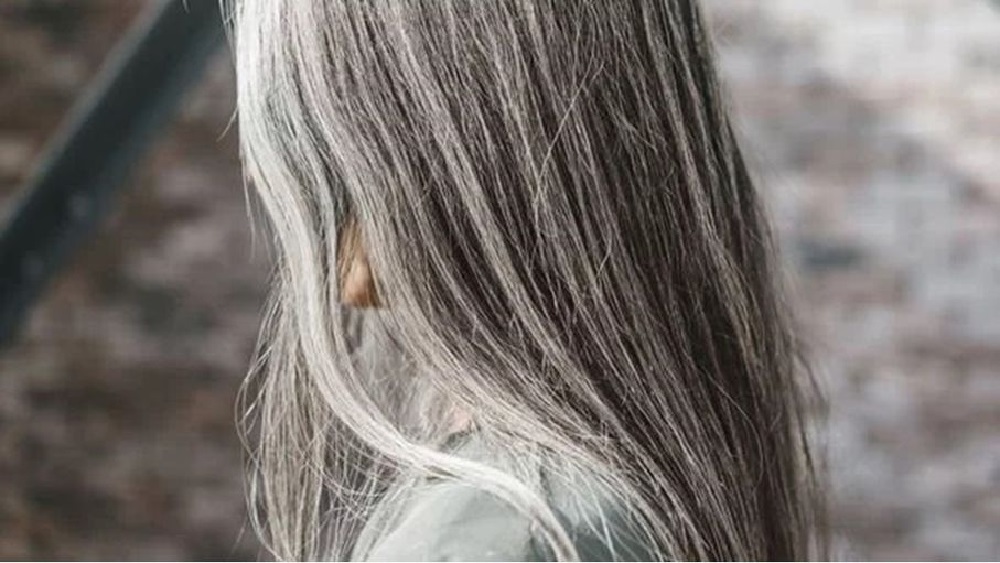The Truth Behind Social Media’s Fork Trend for Gray Hair: Myths and Remedies
Exploring the claims about using forks to prevent gray hair and offering scientifically-backed alternatives for hair health.

Watan–A “trend” is spreading on social media about using a fork to get rid of gray hair. How true is this method?Promoters of this “trend” claim that combing the hair with a fork will make gray hair disappear and prevent hair loss.
The truth is, there is no scientific evidence that combing the hair with a fork or any other tool prevents the appearance of gray hair or prevents hair loss. On the contrary, the prongs of a fork may damage and injure the scalp.
Instead, here are some home remedies that may help with dealing with gray hair:
1-Get your necessary vitamins
Vitamins that help maintain the health of your hair include:
-
- Vitamin B, especially B12 and biotin
- Vitamin D
- Vitamin E
- Vitamin A
2-Get enough minerals
Minerals that play a vital role in hair growth and repair include:
-
- Zinc
- Iron
- Magnesium
- Selenium
- Copper

3-Quit smoking
Smoking can damage hair follicles and shrink their size, so quitting is beneficial for your hair.
3-Protect your hair from the sun
Cover it with a hat or scarf.
4-Stop damaging your hair
There are things you may do that harm your hair. Some hair care actions that may damage it include:
-
- Bleaching hair
- Using a brush instead of a wide-tooth comb, especially with wet hair
- Using excessive heat with curling irons or hairdryers
- Washing hair too frequently
Some people suggest natural remedies for gray hair, but there is no evidence proving their effectiveness. These include:
5-Coconut oil
Massage the hair and scalp with coconut oil every two days, and wash your hair as usual the next morning.
6-Ginger
Take a teaspoon of freshly grated ginger daily, mixed with a tablespoon of honey.
6-Black sesame seeds (Sesamum indicum)
Take a tablespoon of black sesame seeds 2-3 times a week.
7-Clarified butter (ghee) massage
Massage your hair and scalp with pure ghee twice a week.
7-Onion juice
Blend an onion and strain its juice. Twice a week, massage this juice into the scalp, leave for 30 minutes, and wash as usual with shampoo.
These methods have not been clinically studied (on humans) for effectiveness. You may also be allergic to many of these remedies. So, if you decide to try a home remedy, consult your doctor first.
More information on gray hair:
Causes of gray hair
1-Genetics
If you noticed white hair at an early age, it’s likely that your parents or grandparents also had gray or white hair early.
2-Stress
Everyone experiences stress from time to time. Chronic stress can lead to sleep problems, anxiety, changes in appetite, high blood pressure, and gray hair. Stress can affect hair, and a 2013 study found a link between stress and depletion of cells in hair follicles in mice. A 2021 study also found that people with gray hair were more likely to report stressful events.

3-Autoimmune diseases
Autoimmune diseases can cause early gray hair. When the body’s immune system attacks its own cells, in conditions like alopecia and vitiligo, the immune system can attack the hair and cause pigment loss.
4-Thyroid disorders
Hormonal changes caused by thyroid issues, such as hyperthyroidism or hypothyroidism, can also lead to gray hair. The thyroid gland helps control many body functions, including metabolism, and its health can affect hair color.
5-Vitamin B12 deficiency
Early gray hair may also indicate a vitamin B12 deficiency, which is important for energy and hair growth. Deficiency can weaken hair cells and affect melanin production.
6-Smoking
There is a link between smoking and gray hair. A study of 107 people found a connection between “the appearance of gray hair before age 30 and smoking.”
How does gray hair occur?
Skin contains hair follicles, small sacs in the skin that house pigment-producing cells called melanocytes. These cells produce melanin, which gives hair its color. Over time, hair follicles may lose pigment, resulting in gray or white hair.





